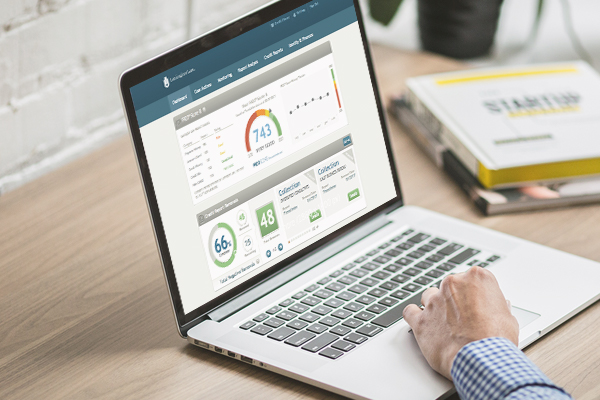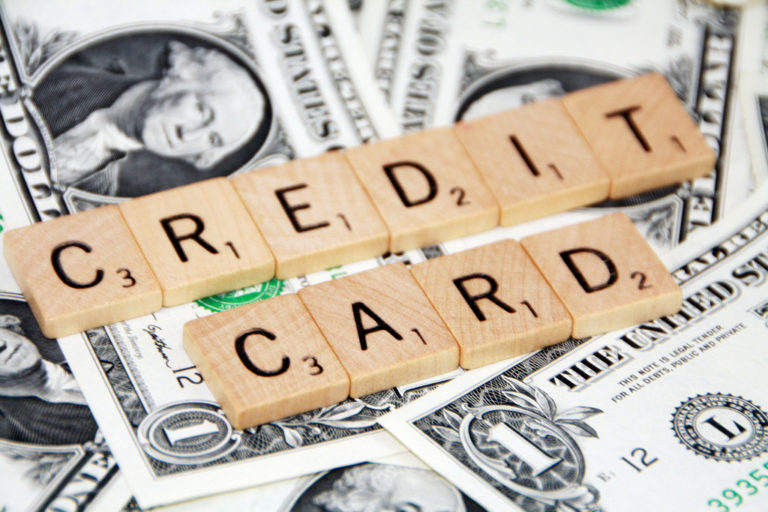I Raised My Credit Score By 150 Points, Here’s How
Photo By: Cafe Credit via Flickr under the Creative Commons License
While your credit score isn’t the most important aspect of your financial profile, it should not be ignored.
As a teenager, I never really understood the concept of credit and how to build up my score properly. Before I even turned 18, I unknowingly had a bad remark on my credit report after the balance from one of my bank accounts was sent to collections. I made an honest mistake but had to pay the price.
When I moved out of my parent’s house at 20 and tried to get an apartment and furniture, my bad credit came to haunt me. It sucked. As a low-income college student, I didn’t have a lot of money to pay for everything in cash and I desperately wanted to improve my score.
Some people in the personal finance niche will argue that credit is irrelevant since it promotes the act of borrowing money and getting into debt. While this is understandable and I don’t encourage people to borrow money to inflate their lifestyle or take out loans they can’t pay back, credit is apart of our society and it can’t always be completely ignored.
If you have dreams of buying a house or need a new car if yours suddenly breaks down and you need to get to work, the first step should be to rely on your savings funds, but as a backup, you may have to utilize credit.
Table of Contents
So What Are the Perks of Having a Great Credit Score?
- Better chances of getting approved for a quality credit card
- Lower interest rates for personal loans and mortgages
- Easier approval for rental houses and apartments
- Easier to get a cell phone contract
- Better car insurance rates
Related Post: Credit Cards Are Not Evil: Don’t Make These Common Credit Card Mistakes
These benefits are at your disposal when your credit score is above average. Should you take out loans every month and open 20 credit card accounts? No, but the option to borrow is there should you ever need it.
Over time, I’ve been able to rebuild my horrible credit score by about 150 points. That’s huge, seeing as how my credit score was pretty pathetic a few years ago and now I could demand the lowest interest rates on a mortgage if I wanted to.
It took me some time to get to this point though. If you’ve made mistakes that have negatively impacted your credit in the past, anyone promising to help you improve your credit overnight is probably not being 100% truthful because it takes time.
If you’re looking for a real solution to building up your credit score, consider taking the following steps.
Check Your Credit Score and Report
Before you start building or rebuilding your credit, you need to know where you stand first so you must check your credit score. You can do this online for free using sites like Credit Sesame. This is the site I used to get my credit score back on track and I’ve written about the benefits of using this free platform as well.
Credit Sesame not only shares your credit score and report with you, but they also provide you with helpful information like your total debt amount, your debt to income ratio, and a credit analysis along with tools like identity theft protection, and goal-setting assistance so you can take active steps toward improving your score.
You can also check out your entire credit report for free once a year by visiting annualcreditreport.com.
Related Article: Free Credit Tools You Don’t Want to Miss Out On
How to Check Your Credit For Free
Figure Out Which Area of Your Credit Profile You Need to Improve
Your credit score is determined by a variety of factors and those include:
Payment History – 35% of score
Credit Utilization – 30% of score
Length of Credit History – 15% of score
New Credit – 10%
Mix of Credit Accounts (how diversified your accounts are ie. student loans, mortgage, credit cards, auto loan) – 10%
Ideally, you should work on improving all factors that contribute to your credit score but some are more important than others. For instance, you can’t really do anything about the length of your credit history aside from waiting for time to go by.
You can however, make sure you pay all your bills and account payments on time and keep a low utilization on your credit cards.
Pay Down Your Debt
Paying down your debt can boost your credit score big time. When I took out a car loan, I didn’t want to do it but I prioritized paying it down and that boosted my credit score. If you have been carrying any balances, be sure to pay them down which may also allow you to save money in interest too.
Now with credit, there is a catch 22 since the system likes you to continue making payments on various different accounts each month because it builds up your payment history. What happens when you pay some of your debt off and close your account?
The credit system doesn’t like that as much as your score may go down a few points but it might not be anything major. Plus, the debt you had will be gone so you should feel good about that. Paying off debt like student loans and car loans is a great way to boost your credit score and improve your finances but it’s not the best way to build your credit history because once you close those accounts, your payment history might disappear after a while.
Yet and still, I’m speaking for myself that I paid off quite a bit of debt over the past two years and I’ve seen my score improve overall even though it might have dipped a few points.
Start With a Secured Credit Card and Keep Your Utilization Low
If you’re trying to rebuild your score so you can have awesome credit, you can try getting a secured credit card and keeping the utilization low. Secured credit cards are backed by a cash deposit you make upfront. The deposit amount is usually the same as your credit limit. For example, you might have to pay $300 upfront to have a $300 credit limit with a secured credit card.
With a traditional credit card, you are offered a limit and you may spend up to that limit.
No matter what your limit is, it’s important to realize you should never utilize more than 30% of it. If you have a credit card with a limit of $1,000, you should never spend more than $300 per month.
To be safe, I usually never utilize more than 20%. Credit cards should be used as a tool to improve your score and not free money.
Therefore, lenders like it when you don’t utilize all of your credit limit because it demonstrates that you’re not dependent on the use of your credit card. If you are worried about your spending and the possibility of getting into debt, you may not want to get a credit card and that’s understandable.
For me, I just play the game. I keep my utilization super low (usually between 5-10%) and I just use my credit cards for regular expenses I would usually pay for like gas, groceries, etc. and sometimes I even attach a small monthly bill like for our Hulu subscription service so I can pay it when I pay off my credit card each month and build up a positive payment history.
I don’t even use some of my credit cards each which gives me a 0% utilization rate but my score still climbs just the same. If you’re going to use a credit card as a tool to improve your credit score, keep it simple, maintain a low utilization, and pay your balance off in full each month.
Make Sure Inquiries Are Removed After 2 Years
Another factor that could be negatively impacting your credit score is inquiries. Soft inquiries (like a current creditor pulling your score to offer you a promotion) don’t affect your credit but hard inquiries (like if you applied for an auto loan and they ran your credit) can leave a lasting impact.
It’s important to keep the amount of inquiries you have to a minimum and make sure everything falls off your credit report within 2 years or less. If inquiries don’t fall off within two years, you’ll need to pull up your full credit report and contact the creditor personally to request they remove the inquiry ASAP. Here is some detailed information about requesting to have credit inquiries removed for your score.
Finally, Be Patient
These are all the things I did to increase my credit score by 150 points but like I said the process took time so the best thing you can do after taking all these steps is to be patient. Awesome credit isn’t built overnight but if you stay persistent you’ll see the same improvement as well.

Stop Worrying About Money and Regain Control

Join 5,000+ others to get access to free printables to help you manage your monthly bills, reduce expenses, pay off debt, and more. Receive just two emails per month with exclusive content to help you on your journey.






